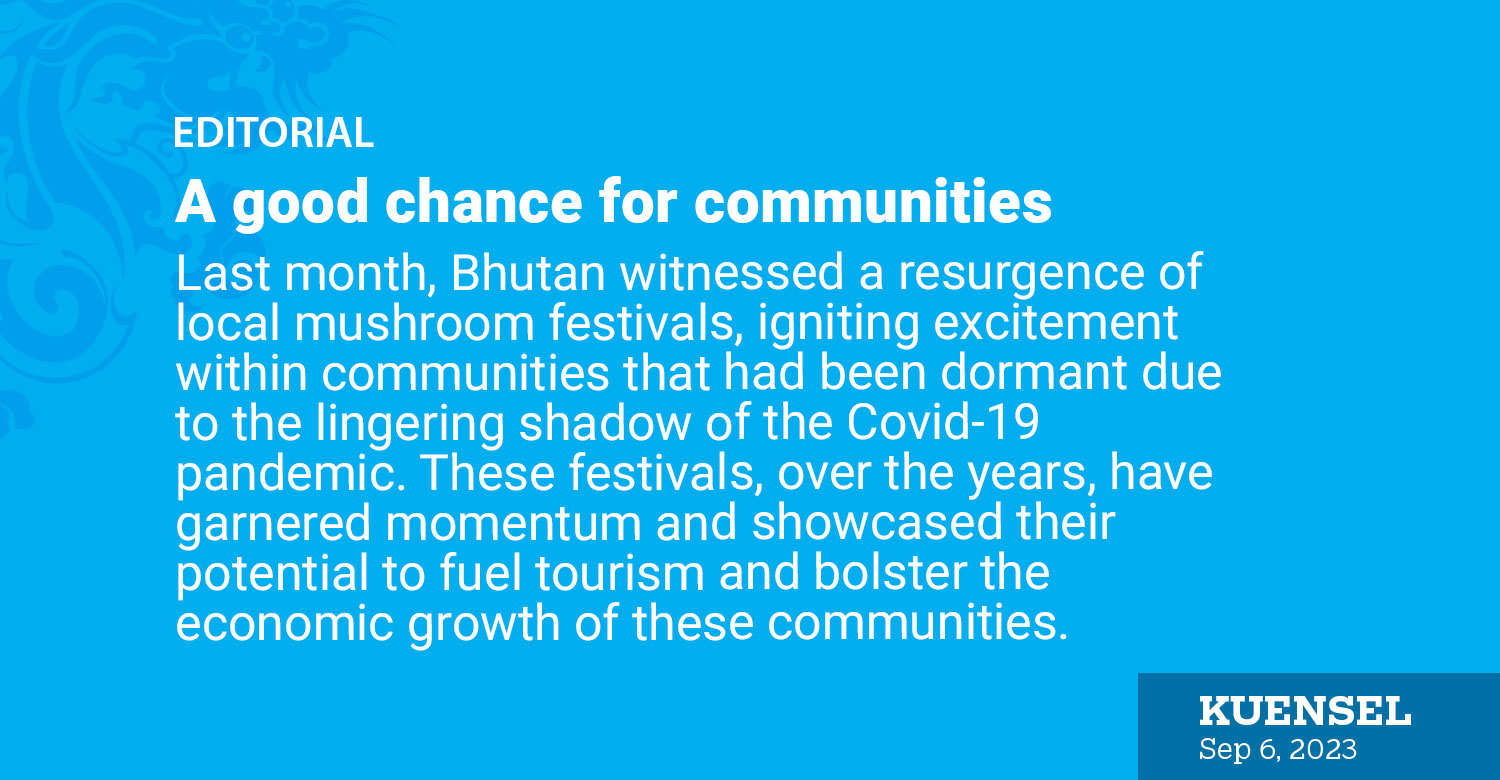Last month, Bhutan witnessed a resurgence of local mushroom festivals, igniting excitement within communities that had been dormant due to the lingering shadow of the Covid-19 pandemic. These festivals, over the years, have garnered momentum and showcased their potential to fuel tourism and bolster the economic growth of these communities.
Bhutan’s Royal Highland Festival, scheduled for next month, stands as a prime example, drawing thousands of visitors, both locals, and tourists alike, providing a platform for natives of Laya and other highland regions to enlighten visitors about their rich cultures and traditions, and forging friendships, and establish crucial business networks.
However, amidst the fanfare and celebration, a critical issue has emerged over the years – lukewarm community ownership of these festivals. It is this very ownership that could breathe new life into these events and transform them into lasting cornerstones of their prosperity.
Like many other sectors, the local festival organisers have been grappling with a shortage of funds, posing a significant challenge to the continuities of these cherished celebrations. While the lack of financial resources is indeed a hurdle, it is the Bhutanese spirit of community and national service that should inspire us to overcome such obstacles.
His Majesty’s wise words, “putting common good above oneself”, resonate deeply with the essence of these festivals. These events are about ‘us,’ not ‘me.’ They embody the spirit that builds a nation and breathes life into even the most remote communities, thriving under challenging conditions.
Local festivals should serve as more than just entertainment or a reason to come together. They represent a remarkable opportunity to foster a stronger sense of community spirit, invigorate community vitality, and fuel participatory development. To truly harness the potential of these festivals, communities must take charge and become stewards of their own cultural heritage.
One way to ensure community ownership is by establishing a sustainable framework for funding and organising these festivals. Community-driven fundraising initiatives can alleviate financial constraints, ensuring that festivals continue to flourish year after year. Moreover, involving community members in the planning and execution of these events not only empowers them, but also deepens their connection to the festivals’ significance.
Another vital aspect of community ownership lies in education. These festivals should serve as educational platforms, teaching younger generations about their cultural heritage, traditions, and the values that define Bhutanese society. When community members actively engage in sharing their knowledge and traditions with festival-goers, they not only preserve their culture, but also inspire a profound appreciation for it among attendees.
It’s essential to extend community ownership beyond the festival dates. Building networks for sustainable economic development should be our primary goal. Community-based businesses, co-operatives, and partnerships can arise from these festivals, ensuring that economic impact extends far beyond a few days of celebration. By harnessing these events as catalysts for economic growth, communities can secure their long-term prosperity.


